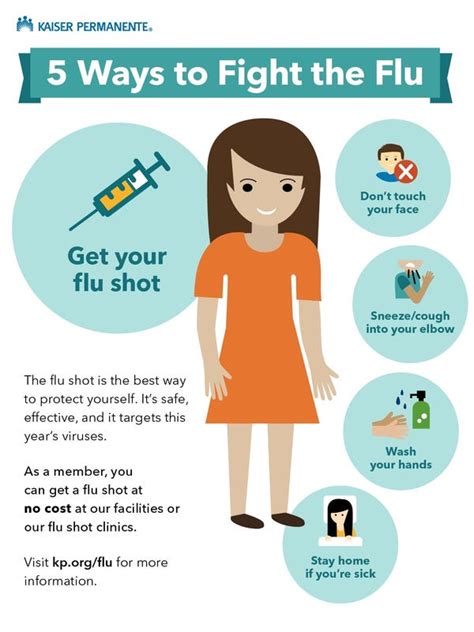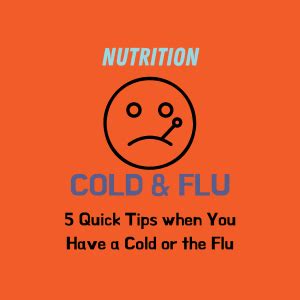Intro
Boost immunity with 5 ways to fight flu, featuring natural remedies, vaccination, and healthy habits to prevent influenza, flu symptoms, and seasonal outbreaks.
The flu season is upon us, and it's essential to take proactive steps to protect ourselves and our loved ones from this highly contagious and potentially life-threatening illness. With the rise of new flu strains and the constant evolution of the virus, it's crucial to stay informed and equipped with the latest knowledge on how to fight the flu. In this article, we'll delve into the world of flu prevention, exploring the most effective ways to boost our immune systems, prevent the spread of the virus, and recover quickly if we do get infected. Whether you're a parent, a healthcare professional, or simply someone looking to stay healthy, this article is packed with valuable insights and practical tips to help you navigate the flu season with confidence.
As we navigate the complexities of flu prevention, it's essential to understand the importance of a multi-faceted approach. From vaccination and hygiene to nutrition and stress management, every aspect of our lifestyle plays a critical role in determining our susceptibility to the flu. By adopting a holistic approach to health, we can significantly reduce our risk of getting infected and minimize the severity of symptoms if we do get sick. In the following sections, we'll break down the most effective strategies for fighting the flu, providing you with a comprehensive roadmap to a healthier, happier you.
The flu is a highly contagious respiratory illness caused by the influenza virus, which can spread quickly through the air when an infected person talks, coughs, or sneezes. According to the Centers for Disease Control and Prevention (CDC), the flu affects millions of people worldwide each year, resulting in thousands of hospitalizations and deaths. The good news is that there are many ways to fight the flu, from getting vaccinated to practicing good hygiene and taking care of our overall health. By taking proactive steps to protect ourselves, we can reduce the risk of getting infected and help prevent the spread of the virus to others.
Understanding the Flu Virus

Types of Flu Viruses
There are several subtypes of flu viruses, each with its unique characteristics and severity. The most common subtypes include: * Influenza A (H1N1) * Influenza A (H3N2) * Influenza B * Influenza C Each subtype has its own set of symptoms, complications, and treatment options. By staying informed about the different types of flu viruses, we can better prepare ourselves and our loved ones for the flu season.5 Ways to Fight the Flu

1. Get Vaccinated
Getting vaccinated is one of the most effective ways to prevent the flu. The flu vaccine is designed to protect against the most common flu viruses, and it's updated annually to reflect the latest strains. The CDC recommends that everyone over the age of 6 months gets vaccinated, especially high-risk groups such as young children, older adults, and people with chronic health conditions. By getting vaccinated, you can significantly reduce your risk of getting infected and help prevent the spread of the virus to others.2. Practice Good Hygiene
Practicing good hygiene is essential for preventing the spread of the flu virus. This includes: * Washing your hands frequently with soap and water * Avoiding close contact with people who are sick * Avoiding touching your eyes, nose, and mouth * Covering your mouth and nose with a tissue when you cough or sneeze * Cleaning and disinfecting surfaces and objects that may be contaminated with the flu virus By practicing good hygiene, you can significantly reduce your risk of getting infected and help prevent the spread of the virus to others.3. Take Care of Your Overall Health
Taking care of your overall health is critical for fighting the flu. This includes: * Getting enough sleep * Exercising regularly * Eating a healthy diet rich in fruits, vegetables, and whole grains * Managing stress * Staying hydrated By taking care of your overall health, you can boost your immune system and reduce your risk of getting infected.4. Use Antiviral Medications
If you do get infected with the flu, antiviral medications can help reduce the severity of symptoms and shorten the duration of the illness. The most common antiviral medications for the flu include oseltamivir (Tamiflu) and zanamivir (Relenza). These medications work by inhibiting the replication of the flu virus, reducing the severity of symptoms, and shortening the duration of the illness.5. Stay Informed
Staying informed about the flu is essential for fighting the virus. This includes: * Staying up-to-date with the latest news and research on the flu * Following public health guidelines and recommendations * Knowing the symptoms of the flu and when to seek medical attention * Being aware of the latest flu outbreaks and hotspots By staying informed, you can stay ahead of the flu and take proactive steps to protect yourself and your loved ones.Nutrition and the Flu

Stress Management and the Flu

Conclusion and Next Steps

We invite you to share your thoughts and experiences with the flu in the comments section below. Have you or a loved one been affected by the flu? What strategies have you found most effective in preventing and treating the flu? By sharing your stories and insights, you can help others stay healthy and resilient throughout the flu season.
What are the most common symptoms of the flu?
+The most common symptoms of the flu include fever, cough, sore throat, runny or stuffy nose, muscle or body aches, headaches, and fatigue.
How long does the flu last?
+The flu typically lasts for 5-7 days, but some people may experience symptoms for up to 2 weeks.
Can I get the flu from the flu vaccine?
+No, you cannot get the flu from the flu vaccine. The flu vaccine is made from inactivated or weakened flu viruses, which cannot cause the flu.
How often should I get vaccinated against the flu?
+The CDC recommends that everyone over the age of 6 months gets vaccinated against the flu every year, as the flu vaccine is updated annually to reflect the latest strains.
What are some natural ways to prevent the flu?
+Some natural ways to prevent the flu include getting enough sleep, exercising regularly, eating a healthy diet, managing stress, and staying hydrated.
